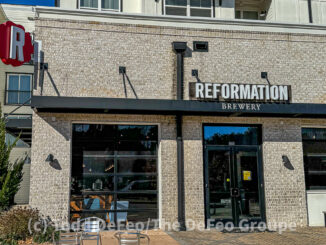
(The Center Square) — Georgia touts its business-friendly climate, but some home-based businesses face another layer of bureaucracy: local government licensing requirements, a Center Square analysis found.
Nearly 30 years ago, Georgia lawmakers passed legislation giving cities the power to impose business and occupation requirements, including taxes and regulatory fees. While lawmakers have revised the law, local governments may levy and collect occupation taxes on any business or practitioner with an office in the jurisdiction.
The result is that many cities and counties require home-based businesses — an increasingly common occurrence in the “gig economy” — to have an occupancy permit.
“It really does penalize the business owners who follow the rules and who are out there trying to do the right thing and dot all the I’s and cross all the T’s,” Beth Milito, senior executive counsel for the NFIB Small Business Legal Center, told The Center Square. “I think these municipalities are using a sledgehammer to crack a nut. Rather than them doing the work and parsing through what sort of business it is, they’re just doing the initial check box. Are you an LLC? OK, you’re in.
“That saves them work. It makes it easier for them, and it brings in more money for them, frankly, for those that follow the rules,” Milito said. “But it is absurd, and as a result, you are penalizing … the business owners who are out there to do the right thing in that they try to follow all the rules. You’re penalizing the rule followers.”
The Atlanta suburb of Smyrna is among the Georgia cities requiring home-based business owners to secure an occupancy permit to work from their house.
“Is it perfect for each style of business? Perhaps not,” Smyrna City Councilman Tim Gould told The Center Square. “Does it serve the goal of providing a registration process and equitably distributing costs of those services that businesses use? I think that’s probably a good part of the goal of the business license.”
Of the more than 2,300 businesses in the city, about 19.9% are home-based businesses, and 5.7% are home-based businesses with no employees. In 2022, the city has brought in about $1.7 million in revenue from business licenses, which is higher than the more than $1.3 million city officials budgeted for fiscal 2022 and the $1.5 million it brought in during fiscal 2021.
However, city officials cannot say how they ensure all home-based businesses in the city comply with the regulation.
“It is certainly hard to have policies that are ideal or perfect for a variety … of applications — in this case, different styles of businesses and different sizes of businesses and number of employees,” Gould said. “To have a policy that really is perfect, so to speak, is challenging.”
A spokeswoman for the Georgia Department of Economic Development declined to weigh in on local governments’ licensing fees for home-based businesses.
This article was published by The Center Square and is republished here with permission. Click here to view the original.




